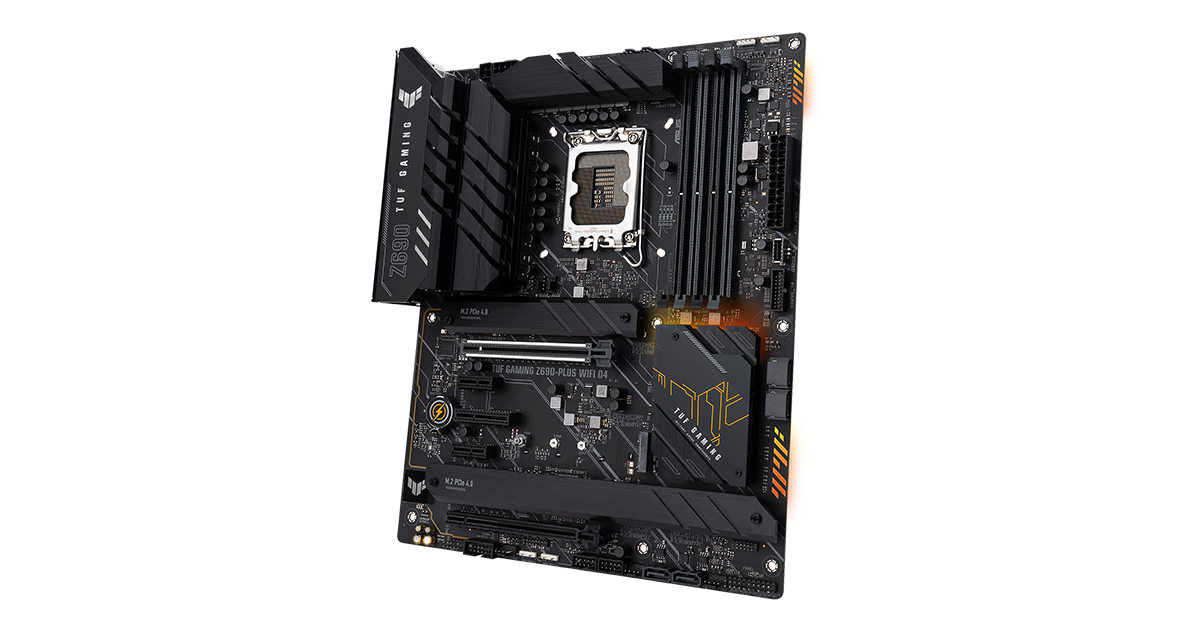Yes, your board supports up to 128GB of DDR4 at speeds up to 5333mhz. That doesn't mean you're going to EASILY be able to accommodate that kind of memory configuration. It just means it CAN "support" it. With four DIMMs at 5333mhz you may find you need to up the voltage or that it will only accommodate that with a specific set of DIMMs. You are a bit more likely to be good with something in the 4000-4400mhz range, but even so you are a lot more likely to not run into problems running at higher speeds if you run only two DIMMs instead of four. It's simply easier on the MC and system.
As for the QVL list not showing any, there probably WEREN'T any of those kits at the time that list was created and it almost certainly, because they almost never are, wasn't updated since it was first made. Read below.
Here's my spiel on QVL. And for what it's worth, I MUCH MORE HIGHLY recommend trusting the G.Skill memory configurator, Corsair memory finder and Crucial advisor than I do the QVL lists. Especially since the QVL validation is done early in board development and most often many of those kits aren't even available anymore OR the DIMM composition has changed, since the validation by the board manufacturer. Not always, to be sure, but often enough to occasionally be problematic.
Crucial's is the "memory advisor". Corsair is the "memory finder". Neither of those two are nearly as good, IMO, as the G.Skill memory configurator, but still miles better than nothing which is what you get from most manufacturers that aren't one of those three.
Mushkin USED to have something similar but then they stopped offering it for some reason. Mushkin is good memory too, it's just unfortunate they don't have a validation tool anymore. I think I'd probably have to add Samsung to the list of memory manufacturers I'd buy from, but, only for OEM type systems or other things, like IOT machines that require memory, NAS box, etc.
Even then I'd be inclined to go with Crucial, but I'd take Samsung as well since obviously they are a fabricator and manufacturer, and often what you get from other manufacturers is actually Samsung parts anyhow.
As far as "where does it leave them", well, it doesn't leave them any worse off than they'd be if they just bought memory from some other manufacturer, and in fact, better off, because all three of those manufacturers will generally replace any kit that showed validation on a given motherboard but won't work, with few or no questions asked. So, you are still ahead of the game as compared to just buying some random brand or model.
And as compared to the motherboard QVL, sure, you CAN go that route, but there are two major problems with that.
One, you are EXTREMELY limited in your choices, because they only test about 5% of the memory kits that are out there that MIGHT work on any given board, ON that board.
Two, motherboard manufacturers tend to do a series of tests VERY early on, before the motherboard is ever released, and then NEVER test any additional memory kits on it again after that. You won't see motherboard manufacturers test new kits as they are released, at least not usually. It's usually test, then release board, then pretend like it never existed. The problem with this is that MANY of those kits they test on these boards, early on, might not even still be available later because the memory manufacturer has superceded that kit with something else, or changed the component makeup of that kit (As seen here:
https://forums.tomshardware.com/threads/amd-ram-compatibility.3210050/#post-19785792 ) or simply stopped manufacturing that part number altogether because of production issues or changes in the supply chain.
So while you can probably find SOME of the kits, maybe even most, that are on the motherboard QVL list, they may or may not even still be the "same" memory that they were when they were first tested AND the number of kits on the QVL that are actually still available at some later date could change from trivially to drastically.
Plus, I have learned through a source that I won't mention because they had asked that I not disclose them, that at least some of the motherboard manufacturers don't actually test specific memory kits on each individual motherboard like the memory manufacturers do. I was told by this person that if three different motherboards (For example. Could be even more, or fewer, board models) by a given manufacturer all use the same VRM and chipset configuration, including the same selection of mosfets, driver ICs, capacitors and chokes, then they will only test whatever kits they are going to test for that "chipset/VRM configuration" on ONE of those boards, and then assume that those same kits will work find on the rest of them as well. This might or might not be true in some cases and is LIKELY why we see some memory kits, repeatedly, not work on boards they are supposedly compatible with, in addition to the potential for the memory manufacturer having changed the configuration and makeup of that kit.
There are OTHER things on the motherboard that COULD have an affect on memory compatibility, and while the chipset and VRM configuration is the biggest factor, it's unlikely that it is the only factor. There are other factors that could be involved as well but those would be getting into territory where I am ultimately neither familiar enough or knowledgeable enough to explain, or probably even understand.
In my experience, and in my personal opinion, G.Skill is making the best aftermarket memory kits out there followed pretty closely by Corsair. Obviously, both, and most all companies, are assemblers, not memory "manufacturers", because they are not fabs. Samsung is a fab, but aside from OEM type stuff they don't really have a presence in most regions in the aftermarket market.
https://www.gskill.com/configurator
https://www.corsair.com/us/en/Categories/Products/Memory/c/Cor_Products_Memory?type=motherboard
https://www.crucial.com/store/advisor
And, you will VERY MUCH want to deal with ONLY matched kits where ALL the DIMMs come together in one kit, not several kits together, even if they exactly the same model.
Spiel on that too can be found in the section titled "Mixed memory" here:
In the beginning, there was......BIOS Before you go ANY further, go to the manufacturer product page for your specific motherboard model AND revision. Revision is an important aspect because for any given motherboard there may be more than one version of that model which will be identified...

forums.tomshardware.com
These should work fine in that board.
PCPartPicker Part List
Memory: G.Skill Ripjaws V 64 GB (2 x 32 GB) DDR4-4000 CL18 Memory ($219.99 @ Newegg)
Total: $219.99
Prices include shipping, taxes, and discounts when available
Generated by PCPartPicker 2023-01-11 00:39 EST-0500
 www.asus.com
www.asus.com
 www.asus.com
www.asus.com

